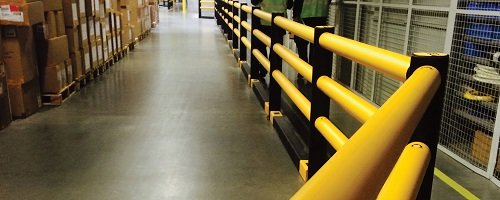鉛の安全バリア:産業オートメーションにおける保護の強化

In the world of industrial automation, lead safety barriers play a crucial role in safeguarding workers, equipment, and sensitive areas from potential hazards. These barriers are essential for ensuring compliance with safety regulations, minimizing risks, and creating a controlled environment where automation processes can operate efficiently. In this article, we will explore the importance of lead safety barriers, their applications, benefits, and key considerations for selecting the right barrier for your needs.
What is a Lead Safety Barrier?
A lead safety barrier is a protective structure designed to shield personnel and equipment from hazardous conditions such as radiation exposure, high-impact machinery, or environmental contamination. These barriers are often constructed using lead due to its superior shielding properties, making them ideal for industries where radiation protection and heavy-duty safety measures are required.
Applications of Lead Safety Barriers in Industrial Automation
- Radiation Shielding in Manufacturing Plants
Many industries, such as medical device manufacturing and nuclear energy production, require lead safety barriers to prevent exposure to harmful radiation. These barriers ensure that operators and surrounding environments remain protected while automated machines handle radioactive materials. - Protection in High-Temperature Environments
In industries dealing with molten metals, extreme heat, or chemical reactions, lead safety barriers act as heat shields, preventing direct exposure to dangerous conditions while allowing automated machinery to function without risk to human operators. - Safety in Heavy Machinery Operations
Automated assembly lines, robotic welding systems, and high-speed cutting machines all pose risks to workers. Lead safety barriers create a clear boundary, preventing accidental entry into hazardous zones while ensuring smooth operation of the automation process. - Containment of Toxic Substances
Chemical processing plants often use lead safety barriers to contain toxic fumes, ensuring that workers are shielded from harmful substances. This is especially important in automated environments where precise control of chemical exposure is necessary.
Benefits of Lead Safety Barriers
- Superior Protection Against Radiation
Lead is known for its high-density properties, making lead safety barriers extremely effective in shielding against radiation, ensuring compliance with health and safety regulations in industries like healthcare, nuclear energy, and research facilities. - Enhanced Durability and Longevity
Unlike traditional safety barriers, lead safety barriers are resistant to corrosion, extreme temperatures, and mechanical wear, providing long-term protection in industrial environments. - Improved Workplace Safety Compliance
Many industrial sectors are subject to strict safety regulations. Installing lead safety barriers helps businesses meet legal requirements, reducing the risk of accidents and liability. - Seamless Integration with Automation Systems
Lead safety barriers can be designed to work seamlessly with modern automation systems, incorporating features like access control, remote monitoring, and adaptive shielding for maximum efficiency.
Choosing the Right Lead Safety Barrier
When selecting a lead safety barrier, consider the following factors:
- Material Thickness: The thickness of the lead barrier should match the level of protection required for your specific industry.
- Customization Options: Some industries require specialized designs, such as movable barriers or barriers with integrated viewing windows.
- Compliance Standards: Ensure that the lead safety barrier meets industry regulations, such as OSHA, ISO, or radiation safety guidelines.
- Cost vs. Durability: Investing in high-quality lead safety barriers may have a higher initial cost but offers long-term savings by minimizing workplace incidents and equipment damage.

結論
As industrial automation continues to advance, ensuring worker and environmental safety remains a top priority. Lead safety barriers provide a reliable solution for shielding against radiation, heat, and hazardous conditions in various industries. By choosing the right lead safety barrier, businesses can enhance productivity, ensure compliance, and create a safer work environment for all.
